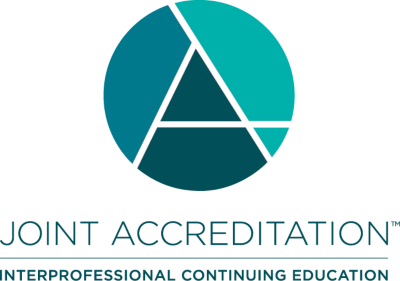An Assessment Tool for Interprofessional Practice
Monday, August 19, 2019, 2:15 pm - 3:15 pm
Greenway A Room
Theme: Optimizing the Interprofessional Clinical Learning Environment
Workshop Description:
During this workshop, we will demonstrate methods that optimize the interprofessional clinical learning environment (primary theme) by sharing an assessment tool that prioritizes patient and family integration in interprofessional practice (secondary theme). Interprofessional collaborative practice (IPCP) is essential to addressing the healthcare needs of the growing older adult population. Effective interprofessional (IP) practice models and team behavior assessment tools are needed to successfully implement IPCP. The Geriatric Interprofessional Teaching Clinic (GITC) incorporates learners from six professions to provide an IPCP model. The GITC Standardized Patient Encounter Evaluation Rubric (SPEER), implemented in 2015, was designed to evaluate the IP team on their ability to: work as a team, identify their roles and responsibilities, and develop a patient/family-centered care plan when providing direct patient care. It has become our prime tool during the debriefing session, providing constructive, structured feedback to learners.
The SPEER was created by the GITC team using several validated interprofessional tools. The SPEER is divided into domains of Interprofessional Teamwork (patient-centered communication, team-based communication), Roles and Responsibilities (team preparation, interview, debrief), and Collaborative Patient Care Plan (patient education needs, social determinants of health). Scores range from 0 (Not observed), 1 (Needs major improvement), 2 (Needs minor improvement), 3 (Acceptable) to 4 (Exemplary). We have examined the change in scores from both the learners and faculty at periodic intervals and found that faculty are able to provide an environment that facilitates growth in student teams’ ability to perform key IPCP team skills using the SPEER tool. Although these skills may not be readily understood by the students at the time of the evaluation, when reflecting on the entirety of the experience, students report improved self-competency in these skill domains.
By sharing this rubric, we would like to provide a tool for faculty to assist in providing better care, value and education in their respective IPCP settings.
Learner Outcomes/Skill Building (30 minutes):
1) Describe the appropriate IPCP milieu for using the SPEER tool;
2) Share an IPCP case vignette and utilize the SPEER to evaluate the encounter;
3) Discuss how attendees can use the SPEER tool to enhance their patient/family-centered IPCP environment.
Active Learning Strategies (20 minutes):
1. Role play a case vignette and use the SPEER tool to evaluate the team dynamics from both the learner and facilitator perspectives,
2. Work in teams in a sample debrief using the SPEER,
3. Optimize inclusion into each participant’s setting: site-specific benefits, solutions to barriers and feasibility concerns.
Interprofessional Continuing Education
This activity has been planned and implemented by the National Center for Interprofessional Practice and Education. In support of improving patient care, The National Center for Interprofessional Practice and Education is jointly accredited by the Accreditation Council for Continuing Medical Education (ACCME), the Accreditation Council for Pharmacy Education (ACPE), the American Nurses Credentialing Center (ANCC) and the Association of Social Work Boards (ASWB) to provide continuing education for the healthcare team. The intent is to provide accreditation and continuing education credit for this workshop. For questions regarding continuing education, please email ipceapps@umn.edu.




